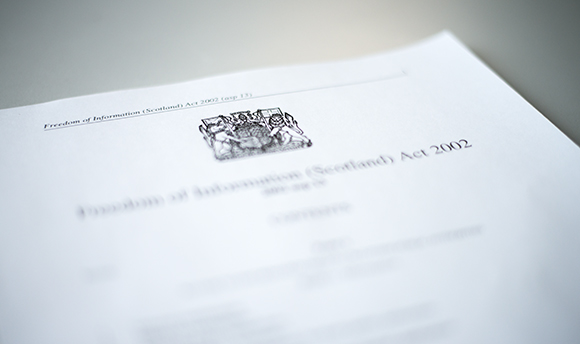Complaints Summary – Academic Year 2022-2023
1.1 The University’s Complaint Handling Procedure is adopted from the Scottish Public Services Ombudsman’s (“SPSO”) Model Complaints Handling Procedure for Higher Education. An update of the procedure was approved by the University Senate in March 2021. As part of this update, the SPSO has updated its requirements for the reporting of complaints and the publishing of complaints performance statistics, complaints trends and outcomes, and actions taken to improve services. Parts 2 and 3 of this report will be published on the University’s website in accordance with this requirement.
1.2 The Complaints Handling Procedure sets out a complaints process with two steps: frontline resolution and investigation. Frontline resolution is appropriate where complaints require little or no investigation and can be resolved within five working days (or ten if an extension is appropriate). Any member of staff may deal with complaints at this stage (including a staff member complained about) with the aim to respond to complaints at the earliest opportunity and as close to the point of service delivery as possible. The investigation stage is invoked for more complex cases, and the procedure states that a full response to the complaint should be provided as soon as possible but not later than 20 working days from the time the complaint was received for investigation. Not all investigations will be able to meet this deadline, and where that is the case, the complainant will be advised of this, and of the revised timeframe, and the reason for the extended timeframe.
1.3 The Model Complaints procedure defines as complaints those matters that have proceeded formally through the University’s Complaints Handling Procedure through either the frontline or investigation stages. This means that straightforward matters, such as queries or comments from students or other parties, are interpreted as routine service requests, and are dealt with at a local level rather than proceeding through the formal complaints process.
1.4 This report provides a summary of the number and nature of complaints that were dealt with under the formal Complaints Handling Procedure during the 2022-23 academic session. Information on performance against published timescales is also provided. Court and Senate members receive an update on complaints activity as part of the Quarterly Compliance Reports presented to the Court and to the Sente.
1.5 During the reporting period, the Legal Adviser and University Secretary provided support and advice to any member of staff dealing with a complaint at any level. For the first three months of the 2023 calendar year, there was a vacancy for the Legal Adviser post and the Policy Adviser provided support on a temporary basis.
1.6 Members are asked to NOTE the information in this report.
2.1 INDICATOR ONE - TOTAL NUMBER OF COMPLAINTS
During the period under review, there were 22 complaints recorded as being received from students and members of the public (21 in 2021-2022). Fourteen of the 21 complaints were categorised as ‘frontline’, and eight were categorised as proceeding to investigation.
|
Stage 1 (Frontline) |
Stage 1 (Escalated) |
Stage 2 (Investigation) |
Total |
|
|
Student – School of Arts, Social Sciences and Management |
8 |
0 |
2 |
10 |
|
Student – Graduate School |
0 |
0 |
1 |
1 |
|
Student – School of Health Sciences |
4 |
0 |
4 |
8 |
|
Members of the Public |
2 |
0 |
1 |
3 |
|
Total |
14 |
0 |
8 |
22 |
2.2 INDICATOR TWO – RESPONSE TIMESCALES
2.2.1 Stage 1 Complaints
|
Full response within 5 working days (%) |
Full response beyond 5 working days (%) |
Total Stage 1 Complaints responded to |
|
5 (50%) |
5 (50%) |
10 |
Four complaints originally logged at Stage 1 were subsequently withdrawn by the complainants.
Of the Stage 1 complaints responded to beyond the target 5 working day timeframe, reasons for delay included:
· Staff absence due to the University’s festive closure period.
· A complaint involving information gathering from another organisation.
· Time taken to gather information to allow response at Stage 1, rather than referring directly to Stage 2.
2.2.2 Stage 1 Complaints – Escalated
There were no complaints escalated from Stage 1 to Stage 2 of the Complaints Handling Procedure in academic year 2022-23.
2.2.3 Stage 2 Complaints
|
Full response within 20 working days (%) |
Full response beyond 20 working days (%) |
Total Stage 2 Complaints responded to |
|
1 |
3 |
4 |
One Stage 2 Complaint was confirmed as being time barred, although retrospective clarification was provided and appears to have resolved the complaint.
Three complaints were moved out of the investigation stage and were progressed under relevant HR procedures.
Response timescales were impacted negatively during the period of recruitment to the vacated role of Legal Adviser.
2.3 INDICATOR THREE – AVERAGE TIME TO RESPOND
|
Complaints handling stage |
Average number of working days |
Target (working days) |
|
Stage 1 |
6.7 |
5 |
|
Stage 1 (escalated) |
- |
- |
|
Stage 2 |
25 |
20 |
2.4 INDICATOR FOUR – COMPLAINT OUTCOMES
2.4.1 STAGE 1 - FRONTLINE RESOLUTION
Frontline cases are dealt with by the most appropriate member of the ‘frontline’ team, with the aim of resolving the issue/s raised. As a formal ‘investigation’ of the issue/s is not carried out, frontline cases are not described as being ‘upheld’ or ‘not upheld’. Instead, the aim is to find a resolution to the matter being complained about.
Four of the complaints submitted at Stage 1 were withdrawn by the complainant, and the remaining 10 Stage 1 complaints were resolved.
2.4.2 Stage 1 Complaints – Escalated
There were no complaints escalated from Stage 1 to Stage 2 of the Complaints Handling Procedure in academic year 2022-23.
2.4.3 Stage 2 Complaints
Eight complaints recorded moved to the investigation stage directly due to the nature of the issues raised.
· One complaint was upheld following investigation.
· Two complaints were partially upheld following investigation.
· One complaint was not upheld following investigation.
· One complaint was not progressed due to the length of time having elapsed since the issue being complained about.
· Three complaints were moved out of the investigation stage and progressed under relevant HR procedures.
The University values complaints as a source of learning, and examples of such learning and areas of enhancement arising from complaints are as follows:
· In response to a complaint regarding lighting within the LRC, additional motion sensors were installed to ensure that the lights did not go out where little or no movement was being detected.
· Feedback on communication styles has been provided to members of staff.
· An overseas partner organisation has reviewed and revised its local complaints handling procedure.
· Staff in Student Accommodation Services have reflected on how to better set resident expectations regarding storage costs and associated budgeting where there is a gap in tenancy.
· Staff attached to the Graduate School have committed to facilitating changes of supervisory teams in a timelier manner.
The subject matter of the stage one complaints are summarised briefly as follows:
|
Stage 1 Complaints by Subject
|
Resolved |
Withdrawn |
Total |
|
Admissions |
1 |
- |
1 |
|
Disability Services |
1 |
- |
1 |
|
Estates and Facilities |
2 |
- |
2 |
|
Learning, Teaching and Assessment |
3 |
3 |
6 |
|
Staff Conduct |
3 |
1 |
4 |
|
Total |
10 |
4 |
14 |
5.1 The subject matter and outcome of the stage two complaints are summarised briefly as follows:
|
Upheld |
Upheld – in part |
Not Upheld |
Not Progressed – Time Barred |
Transferred to HR |
Total |
|
|
Conduct: Academic staff
|
- |
- |
- |
1 |
3 |
4 |
|
Admissions: Handling of application
|
1 |
- |
- |
- |
- |
1 |
|
Admissions / Graduate School: Recruitment to Prof Doc rather than PhD
|
- |
1 |
- |
- |
- |
1 |
|
Complaint: Handling of complaint
|
- |
1 |
- |
- |
- |
1 |
|
Student Accommodation: Rent increase / lack of storage for items.
|
- |
- |
1 |
- |
- |
1 |
|
Total |
1 |
2 |
1 |
1 |
3 |
8 |


